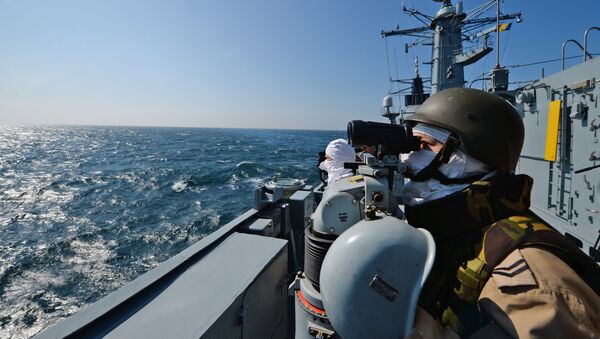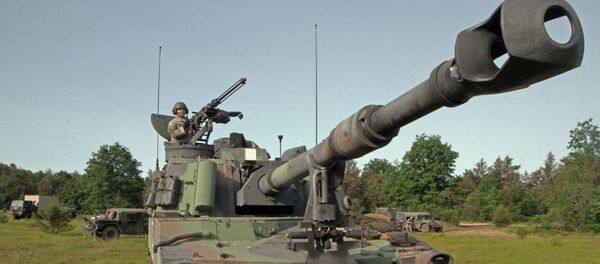On Tuesday, NATO's Secretary-General Jens Stoltenberg described some of the measures the alliance will adopt as part of the "biggest reinforcement to [its] collective defense since the end of the Cold War." The buildup is meant to send a "message" to Moscow that NATO will "continue to protect and defend all Allies against any threats coming from any direction."
Four rotational battalions
"Four robust multinational battalions," as the alliance refers to them, will be sent on a rotational basis to Lithuania, Latvia, Estonia and Poland. Each is expected to comprise 800 – 1,000 soldiers.
BREAKING: #NATO will deploy by rotation 4 robust multinational battalions to Estonia, Latvia & Lithuania & Poland – SG @jensstoltenberg
— Oana Lungescu (@NATOpress) 14 июня 2016 г.
Germany, the United Kingdom and the United States have agreed to create three of the four battalions. Canada is rumored to be in talks of taking charge of the fourth. Other nations, including France, will contribute.
Britain is determined to deploy its "framework battalion" in early 2017, the country's Defense Secretary Michael Fallon said.
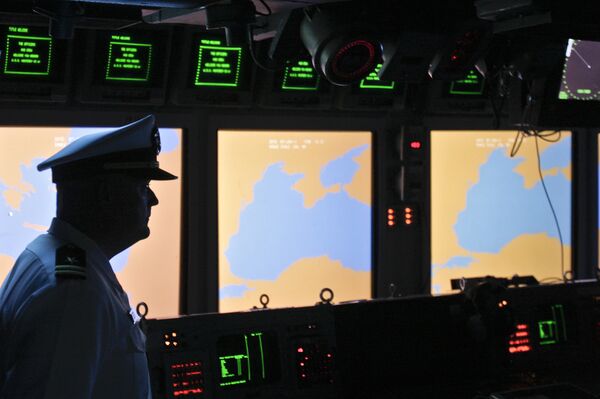
NATO's buildup in the Black Sea
The North Atlantic Alliance is determined to increase its military presence in the Black Sea. The bloc is already active in the region. "We have already increased our presence with more air-policing, with assurance measures, with more naval presence and more exercises," Stoltenberg told reporters.
No extra information has been provided on the brigade.
This step, if taken, will come on top of NATO's decision to preposition equipment and supplies in the region.
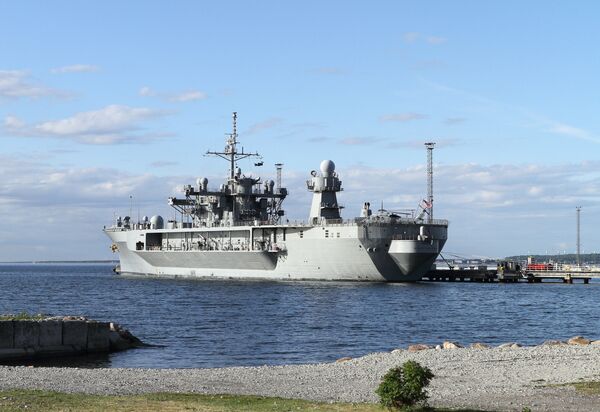
Additional measures
Additional steps that the North Atlantic Alliance is working on deal with the free movement of NATO forces across Europe and improved cyber defense. The bloc has already overcome some bureaucratic hurdles and revised procedures that help to move troops faster.
"It is vital that our troops and equipment can move without delay. For exercises in peacetime, for reinforcements in an emerging crisis, time is of the essence," Stoltenberg said.
NATO's chief also urged member states to increase defense spending to help make all of these measures a reality.
#NATO defense ministers reviewed progress on defense investment pledge; spending is up but Allies must do more pic.twitter.com/ugg4K7aG5E
— US Mission to NATO (@USNATO) 14 июня 2016 г.
NATO's alarming approach to Russia
Needless to say, Moscow has been concerned with the bloc's military buildup and its rhetoric. After all, several senior NATO members have repeatedly accused Russia of supposedly aggressive behavior and called the country a threat to its neighbors. Russia has always denied these unfounded claims.
"Even foreign diplomats admitted that there is no threat of [Russian] aggression, no possible attack; it's all a myth, a bluff, etc.," Russian Foreign Ministry spokeswoman Maria Zakharova said recently. "Once again, I would like to say that Russophobia has turned into a profitable business."
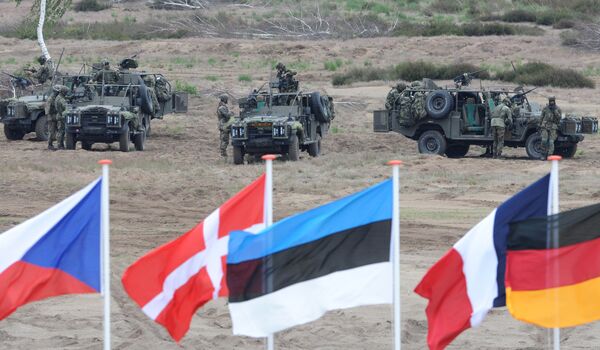
Meanwhile, Stoltenberg said that NATO does not "seek a confrontation" with Moscow and does not "want a new Cold War" to erupt.
Steven Kelly, former CIA and NSA contractor, described NATO's conciliatory statements and provocative actions towards Moscow as "clearly a hypocrisy."
"Russia is being chastised for having military maneuvers within their own country and NATO is deploying right up against the border, which is the most provocative thing Russia has seen since WWII," he told PressTV. "We are looking at a repeat of history, it seems."
Kelly also urged Moscow to be wary of NATO's stated peaceful intentions.
"The powers that be here in the Western world are definitely looking to start a confrontation. It's not a matter of if they will, it's more of a matter of when. I expect that this is probably going to be happening in the summer time," he suggested.
